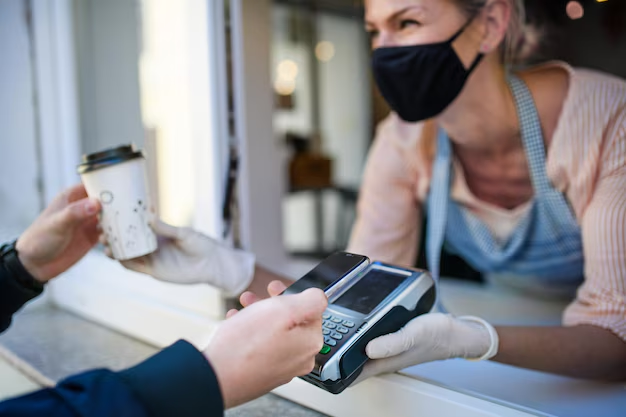**This article was generated with the assistance of AI. While efforts are made to provide accurate and helpful information, occasional errors or omissions may occur.
Understanding Cashier's Checks: What You Need to Know
In today's fast-paced financial world, where digital transactions and credit cards seem to dominate, certain traditional banking instruments still play a crucial role. One such instrument is the cashier’s check. But what exactly is a cashier's check, and why might you need one? Let's dive into the details to unravel the mystery of this banking tool and understand its place in personal finance.
The Basics of a Cashier's Check
A cashier’s check is a type of check that is guaranteed by a bank and drawn from the bank's own funds. Instead of the check amount being deducted from an individual’s account, the bank takes on the responsibility for ensuring the check is funded. This makes cashier's checks a more secure and reliable method of payment compared to personal checks.
How Does a Cashier’s Check Work?
The Purchase Process:
- The purchaser approaches their bank to buy a cashier's check.
- The bank verifies the funds in the purchaser's account and subsequently withdraws the specified amount.
- The bank issues the check, using its own funds, payable to the specified recipient.
Why Use a Cashier’s Check?
- Security: As the bank guarantees the funds, cashier’s checks provide a high level of security for the recipient.
- Trust: These checks are often used in situations that require maximum trust and assurance, such as real estate transactions or purchasing a vehicle.
- Immediate Availability: Once deposited, the funds from a cashier’s check are generally available more quickly than those from a personal check.
When to Use a Cashier’s Check
Large Purchases
Cashier’s checks are commonly used for large transactions where buyers and sellers need assurance of fund availability. Some typical scenarios include:
- Buying a House: Ensuring that the down payment is covered with bank-certified funds.
- Purchasing a Vehicle: Offering secure payment for both parties during a sale.
Situations Requiring Certainty
In some scenarios, individuals prefer cashier’s checks over personal checks due to a higher level of certainty. This can be the case when:
- Dealing with Strangers: When purchasing or selling items between unfamiliar parties.
- Legal Settlements: Secured payments as part of legal agreements.
Security Deposits and Rent
Landlords and property managers often request cashier's checks for the first month’s rent and security deposits to avoid bounced or fraudulent checks.
Differences Between Cashier’s Checks and Other Checks
Cashier’s Check vs. Personal Check
- Guarantee: Unlike personal checks, cashier’s checks are backed by the issuing bank.
- Speed: Cashier’s checks generally process faster because they are from bank funds and considered more reliable.
Cashier’s Check vs. Certified Check
- Certified Checks: These are personal checks that the bank certifies funds for, but the responsibility of funds remains with the account holder, not the bank.
- Preference: Cashier’s checks are often preferred for larger transactions due to the additional bank backing.
Obtaining a Cashier’s Check
Steps to Acquire a Cashier's Check
- Visit Your Bank: Go to a branch of your bank or credit union.
- Bring Identification: Have a government-issued ID ready.
- Know the Details: Have the exact amount and the recipient's name.
- Pay Required Fees: Most banks charge a small fee for cashier's checks.
- Secure the Check: Safeguard the check until it is delivered to the recipient.
Can You Obtain a Cashier's Check Online?
Increasingly, banks offer online services to order cashier’s checks, which are then mailed to the recipient or the buyer. Always confirm the process through your bank’s official channels.
Understanding Fees
Banks charge for the issuance of cashier's checks, typically ranging from $5 to $15, but some accounts might offer them for free. It's advisable to understand these fees ahead of issuance.
Risks Associated with Cashier's Checks
Counterfeit Checks
Beware of Scams:
- Fraudulent Transactions: Scammers can produce fake cashier's checks that look authentic.
- Verification: Contact the issuing bank directly to verify a check’s authenticity before accepting it.
Loss or Theft
Losing a cashier’s check requires immediate action. Report the loss to the bank to prevent fraudulent cashing, although replacement might take time.
Maximizing the Benefits of a Cashier’s Check
Safety Tips
- Verify the Check: Always verify the check directly with the bank.
- Secure Your Check: Keep it safe until it’s needed.
Efficient Usage
- Use For Large Transactions: Leverage the security and reliability for transactions requiring high trust.
- Understand Timeframes: Be aware of when the funds will be available to the recipient.
Practical Tips for Handling Cashier’s Checks
Here’s a concise bullet-point summary to help you navigate cashier's checks like a pro.
Key Takeaways 📝
- Use for Secure Payments: Ideal for large purchases or transactions requiring guaranteed funds.
- Verify Fast: Always verify the check with the bank to avoid scams.
- Handle with Care: Keep your cashier’s check secure until used.
- Understand Costs: Be aware of the fees associated and account for these in your budgeting.
Wrapping It Up
Cashier’s checks provide a secure, bank-backed method of payment that offers confidence in financial transactions. Whether for purchasing a home, managing substantial transactions, or ensuring the recipient receives guaranteed funds, these checks are invaluable tools in personal finance. Remember to leverage the security, know when and why to use one, and be cautious about their inherent risks. Understanding these aspects enables you to benefit from the added security and reliability offered by cashier’s checks.

Related Topics
- 50/30/20 Budget Rule
- Bank Account Switching Bonuses
- Beginner Personal Finance Guide
- Best Budgeting Apps
- Best Cash-back Websites
- Best Cashback Credit Cards For Groceries
- Best Checking Accounts
- Best Expense Tracker Apps
- Best High-yield Savings Accounts
- Best Money Management Tools
- Best Money-saving Tips
- Best Personal Finance Books
- Best Prepaid Debit Cards
- Best Savings Accounts
- Best Savings Apps
